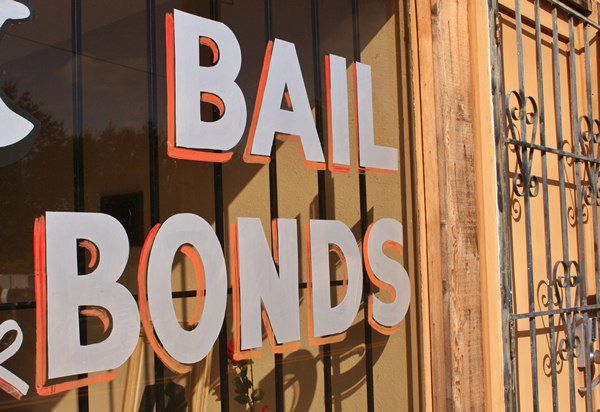
If a bail agent from another state tries to make an arrest in South Carolina, they may face stiff penalties although there is no written law to stop them.
“We are not going to allow anyone to come here and arrest someone,” says Willie Seawright with the state’s Department of Insurance in Columbia. “If we find out, we will take action.
“We run a tight ship in South Carolina,” says Seawright who is over the department that regulates professional and surety bail agents as well as runners. “If you are not fully informed, you cross state lines and you may be looking at kidnapping charges.”
But bail agents have a different view. Bottom line – there is no law to stop agents from coming in to South Carolina to make an arrest.
“South Carolina does not have a law that says an agent from another state cannot arrest a client here,” says Mike Curley, president of state’s Bail Agents Association.
It’s an unwritten rule, Seawright says. But it’s in accordance with the state laws, he says.
No one can act as a bail agent in South Carolina without being licensed and one requirement is that the person has to be a resident, according to the state’s Code of Laws 38-53-90.
“You may present this to these agents, but you can’t make them follow the rules,” Seawright says.
Still, South Carolina is not the only state that has these rules. North Carolina has taken a similar stance.
“Even if they are licensed in another state, they must be licensed here to act as a bail bondsman,” says Kristin Milam, spokeswoman for the North Carolina Department of Insurance. “It is a misdemeanor so we can arrest them. Our investigation’s division can arrest some body who is acting as a bail bondsman without a license and actually we have made those kinds of arrests in the past.”
Curley says he isn’t aware of any such law in North Carolina.
“We go there all the time” Curley says. “I’ve never had any trouble in North Carolina.”
Mark Cartret, president of the North Carolina Bail Agents Association, says a properly licensed surety from another state may come in his state and arrest their “skip” at any time.
“Whomever said outside agents cannot come into North Carolina and arrest their skip is factually wrong,” says Carteret, who has been licensed as a bail agent for 15 years. “Out of mere reciprocity alone, licensed bondsmen and their agents operate here all of the time, apprehending skips.
“I have been to more than half a dozen states to apprehend skips and never had any problem. I have also did pick-ups in Canada and Mexico, working with the proper authorities of course.”
At question is the interpretation of the U.S. Supreme Court ruling Taylor vs. Taintor which says bail agents can pursue their clients into another state.
“They may exercise their right in person or by agent. They may pursue him into another state; may arrest him on the Sabbath; and if necessary, may break and enter his house for that purpose,” according to the 1872 ruling, which has not been overturned.
“Everyone has changed their laws to make sure their citizens are protected,” Seawright says. “A lot of bail bondsmen may use the Supreme Court ruling to their advantage to get their clients, but you have to look at the laws of each state. In some states you can’t perform the duty of bail bondsman or runner.”
This has been a hot topic many times says Linda Braswell with the Professional Bail Agents of the U.S. – the only national association for bail agents.
“The uniform extradition code gives you the right to pursue a defendant, but it doesn’t give you the right to cross state lines if it goes against that state’s version,” Braswell said.
An estimated 14,000 commercial bail agents nationwide secure the release of more than 2 million defendants annually, according to Bureau of Justice Statistics Special Report. Four states do not allow commercial bail including Illinois, Kentucky, Oregon and Wisconsin.
“Some states are doing nothing but creating a haven for people to run to,” Curley said. “If you don’t let a bondsman come in and get the people they are looking for, that’s what you’re creating.”
The regulators say the agents have to go through law enforcement and they will make the arrest, although it’s not written in the law.
“Let me know when that happens,” Curley said. “Law enforcement is not going to help you unless the person is in the NCIC.”
And mainly felonies are entered into the national crime database for offenders, officials say.
Seawright says if bail agents fail to contact the local law enforcement and have them make the arrest, the insurance department’s legal office will write up the violation and forward it to the Attorney General’s office.
So far the state hasn’t had any reports of a violation.
Officials with the Attorney General’ office in both states says the issue lies with the regulators.
States such as Georgia has it in their law that bail agents have to contact the local law enforcement before making an arrest.
In Georgia, bail agents are regulated by law enforcement.
“They must go through the sheriff’s department,” says Fulton County Sheriff’s Sgt. Gerald Johnson. “They just can’t come into our state and start taking people. That doesn’t happen. They can go to jail for that.”
Johnson said the agents can be charged with kidnapping, false imprisonment and other violations based on what happens at the scene.
Frank Richardson, a bail agent in South Carolina, says to be safe he always contact law enforcement before entering that state to make an arrest.
Still to wait on an officer to arrest a runaway client is not prudent, he says.
“Sometimes you can’t even get the police in your city to assist you to pick your person up,” Richardson said. “A lot of times they won’t do it.”








